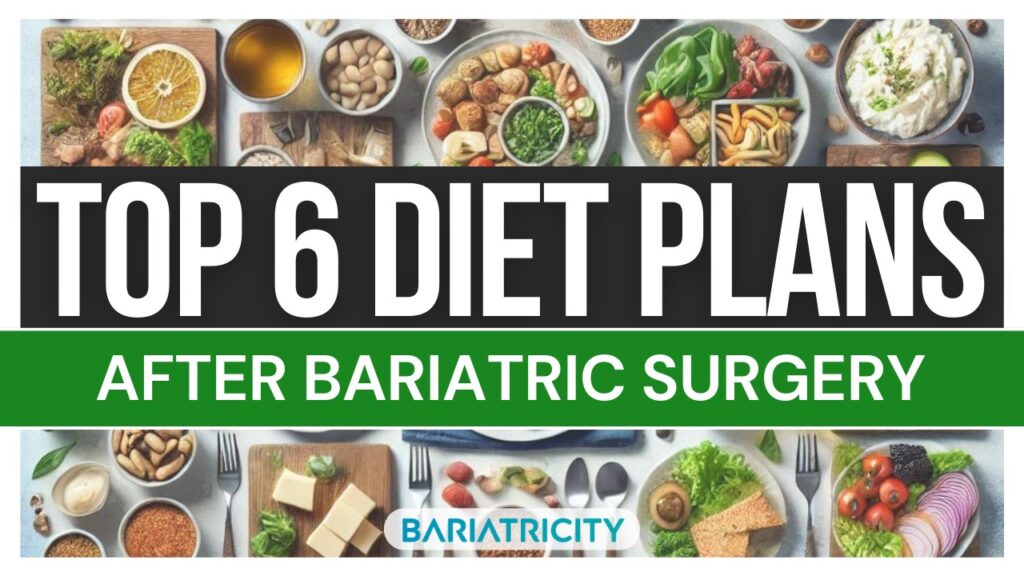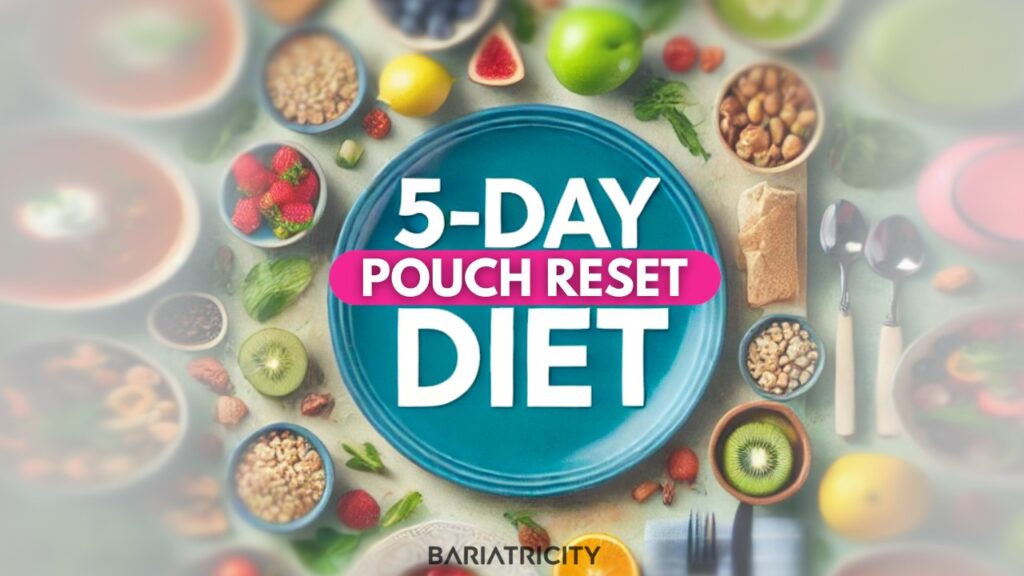There are many different types of bariatric surgery diets, guides, and methods to lose weight out there – some may work for you and others may not. How do you know which one to try first? (or next, I should say!)
Don’t just jump right into the next fad diet because it’s promising the highest weight loss in the shortest period of time. Usually, these are the types of diets that people follow for maybe a week and then give up because it’s either too difficult or too restrictive.
Important Factors to Consider
We believe it is important to balance comfort, structure, and portion control by carefully choosing a diet that includes the healthy foods you love so you never feel like you are being deprived of something completely. When deciding on a diet, you need to ask yourself these questions…
- Is this something I can see myself following long-term?
- Does this seem like a healthy post-op diet to follow?
- Do I feel motivated to follow this?
If your answer is yes to all three of these questions you probably have made a good choice!
Take a look at some of these diet options below to compare the pros and cons in order to help you decide which diet is best for you after bariatric surgery.
Calorie Counting
We recommend that patient’s aim for 1000-1200 calories after bariatric surgery. This calorie range will provide weight loss for most people, no matter what foods you are eating.
However, it may not provide results as quickly as say a low-carb diet that also falls in the 1000-1200 calorie range.
Pros:
- Essentially can eat anything you want in a day as long as it falls in this calorie range.
- No restrictions on certain foods groups.
- No restriction on carbs as long as it is counted toward your calories.
Cons:
- Need to be good at counting calories accurately.
- May not provide as quick weight loss results as other diets.
- You may have more stalls on this diet because your body gets bored at one calorie level long term.
- May not make you feel as full as other diets.
- Higher risk of eating more unhealthy foods.
Low Carb (Keto Diet)
Low carb diets like the keto diet are the most popular for bariatric patients because protein requirements are higher so it seems to be the natural choice for many.
Anything under 100 grams a day can be considered low carb but there are three ranges people generally choose from when following a “low carb” diet.
- Very low carb: 0-25 grams
- Moderate carb: 25-50 grams
- Higher carb: 50-75 grams
Pros:
- Tends to provide quick weight loss if calories remain in optimal range.
- Allows a little more freedom with meats, cheeses, and higher fat items since it cuts out most forms of carbs.
- Tends to provide more feelings of satiety.
Cons:
- Severely limits foods with carbs such as pasta, rice, grains, baked items, fruits, etc.
- The very low-carb range even severely limits vegetables which should be questionable.
- Can easily cause weight gain if not keeping an eye on calories since you are eating more high-calorie items.
Paleo Diet
A paleo diet was designed to mimic the eating habits of our ancestors. Allows meats, fish, eggs, vegetables, oils, fruits, nuts, seeds, and tubers. The key is to eliminate all processed foods.
Pros:
- Allows more carbs than a keto diet as long as they are from whole foods.
- You are most likely eating a“cleaner” diet with less additives, preservatives, artificially sweetened foods, and chemicals.
- Tends to provide a high amount of protein.
Cons:
- Eliminates grains, dairy, beans, and legumes (several food groups).
- Can be difficult for vegetarians to get enough protein.
- Still need to be cautious of calories because there is no portion limit on allowed foods.
Calorie Cycling
Alternates higher calorie days with lower calorie days throughout the week.
Pros:
- Allows higher calories a few days a week so you can eat more of what you want.
- Helps avoid stalls because your body is always adjusting.
- Less chance of diet boredom.
- Can do more intense exercise on high-calorie days (good for bariatric patients who do high-intensity exercise).
Cons:
- A few low-calorie days a week where you will likely to feel more hungry or deprived.
- More weight fluctuations (do not weigh yourself daily on this diet).
- Need to count calories for this to work.
Intermittent Fasting
Choosing not to eat during certain periods of time in a day or choosing not to eat for a full day (usually once or twice a week).
Pros:
- Can eat whatever you want the rest of the time/days (don’t need to count calories or carbs).
- Can accelerate fat loss.
Cons:
- When fasting can only have low-sugar beverages or water, no food.
- May feel tired, weak, or irritable during times of fasting.
Counting Macros
Many bariatric patients choose to eat what they want as long as it falls near their desired macronutrient count (carbohydrates, protein, and fat) along with calories and often also count sugar and fiber.
Pros:
- Requires you to make smart food choices.
- Teaches you to be very mindful of what you are eating (reading food labels, etc).
- Can provide very efficient weight loss when you find the right macro balance for your body and activity level.
Cons:
- Need some sort of food tracking system or app to do this accurately.
- Takes a lot of diligence and planning of meals.
- May need to adjust macro goals to figure out what works best for your body.
These are only a small fraction of the possible diets for bariatric patients to follow. So which one is best? That depends on you!
Pick one from this list to do more research on or choose another… remember there is not one “right” diet that works for everyone. To be most successful, you just need to find something you can stick with for a while and that works for you!
Related Articles:


![Bariatric Surgery Post-Op Diet [Nutritionist Approved] 4 Bariatric Surgery Post-Op Diet Guidelines](https://bariatricity.com/wp-content/uploads/2018/07/Bariatric-Surgery-Post-Op-Diet-Guidelines-1024x576.png)